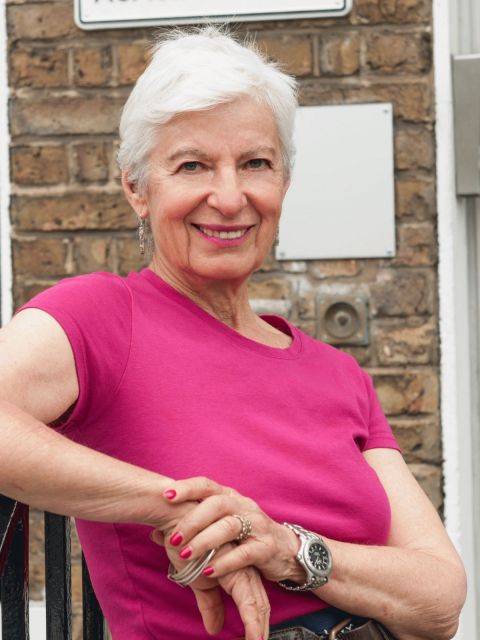Wendy came to the UK from South Africa in the late '60s, having graduated in psychology and social anthropology before emigrating. Having met and briefly worked with Bill Schlackman, one of the great founding fathers of qualitative research in the early '60s, Wendy's love of research grew from stints at both JWT and Market Research Africa, before joining Schlackman in the UK as a permanent employee. Bill was hugely influential in helping Wendy build on her pre-existing fascination with understanding people by giving her the professional and commercial skills to go on and build her own subsequent career.
By the '80s, qualitative research was starting to become more established, alongside the growing field of advertising planning, and it was no surprise that Wendy quickly found her niche in the world of creative development research. She formed agency Quick-Search (later Q-Search), under Schlackman, alongside Colleen Ryan, and they then branched out to create the Research Business, later known as TRBI.
In that era, qualitative research, still a young industry, had more than a hint of the wild west about it. Many new companies emerged, it was highly competitive, there were few women in business and swashbucklers tended to thrive. Enter Wendy Gordon. TRBI set about professionalising research and was soon the biggest in the industry. Wendy had earnt her reputation as a fearsome leader.
But if that was Wendy's public persona as a businessperson, the deeper reality about her was in her intellectual adventure and rigour. She was always more of an anthropologist than a researcher in the strict sense and would break disciplinary borders and venture off in any direction that was intellectually challenging and useful, whether that was economics, neuroscience, social science, or more recently behavioural science, where Wendy's awareness of cognitive advances was well over a decade ahead of the mainstream.
And yet, despite not being constrained by research, she was a true citizen of the industry. AQR, originally the Association of Qualitative Research Practitioners (AQRP), was established in 1981, and Wendy took the helm as Chair shortly after. She drove the industry forwards, challenging, debating, and driving new thinking through courses, papers and close relationships with the research, planner and client communities and this sense of collaboration characterised her whole career.
Wendy's role at AQR didn't stop with her Chairmanship. She encouraged colleagues to take a seat at the table; she spoke at conferences like the joint AQR/QRCA Conference in Rome in 2012, while also becoming involved in other industry bodies, the MRS, ESOMAR, The Research Society (in Australia) and more. She hosted training days and wrote papers; she was a visiting professor at the Birmingham Business School; and was one of the first researchers to earn a place in the Women's Advertising Club of London (WACL).
Wendy published two books on qualitative practice — Qualitative Market Research in 1988 and Goodthinking in 1999. These were followed by her 2016 finale Mindframes, which was about different lenses through which to think. It was these different ways of thinking that really formed the heart of her philosophy.
Since Wendy retired, her curiosity and energy never subsided. She became an accomplished potter and continued to question the world of market research vicariously through friends and ex-colleagues. She even suggested that ChatGPT write her obituary.
In common with most people who leave an indelible mark, her character was multi-faceted. She could be fierce, resolute, combative, and unstoppable. But she could also be generous, loyal, forgiving, and kind. She believed in giving people their shot, including co-forming Acacia Avenue with three partners, two of whom had no experience in research at that point.
Perhaps the unifying qualities that everyone saw were her bravery and restlessness. Professionally, she was ultimately interested in ideas and people and where those two things came together. Her self-stated mission when writing her paper Darkroom of the Mind for the AQR/QRCA joint annual conference in 2001, was "to inspire people to embrace the possibility of thinking completely differently." Her legacy is immense, we can confidently say she achieved her mission. And for that, we all owe her our gratitude.


